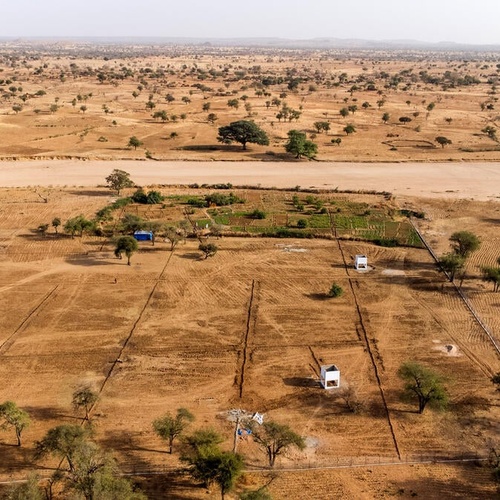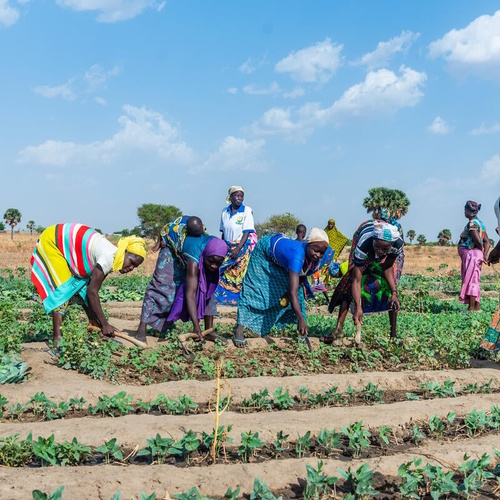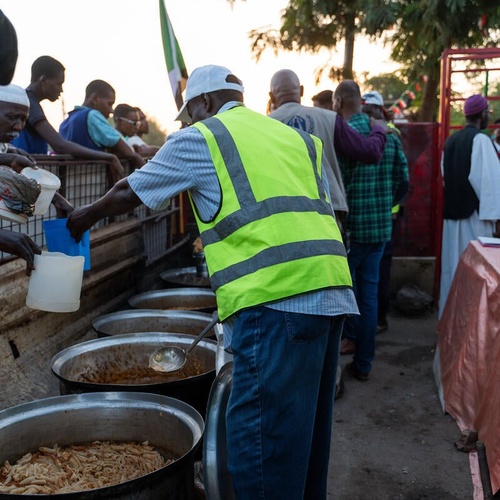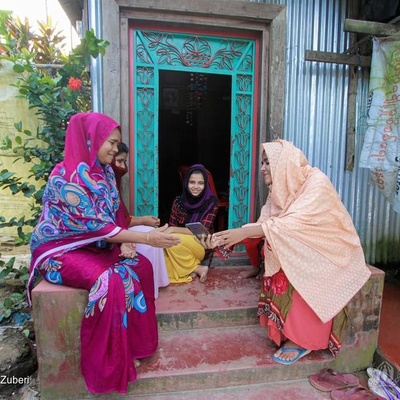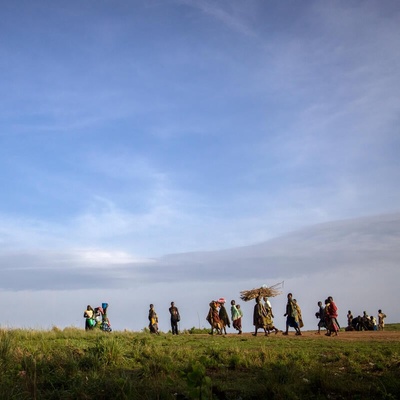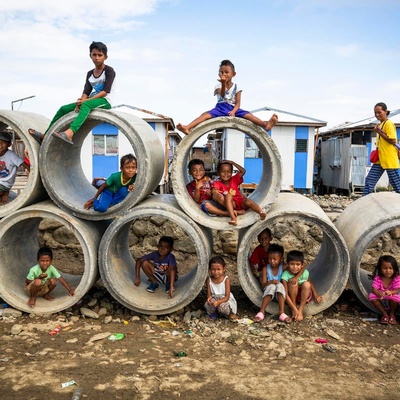Data and analysis
Data and analysis
UNHCR is enhancing the availability and quality of data and evidence on refugees, displaced persons, stateless populations, and host communities to optimize resource distribution and develop evidence-based policies.
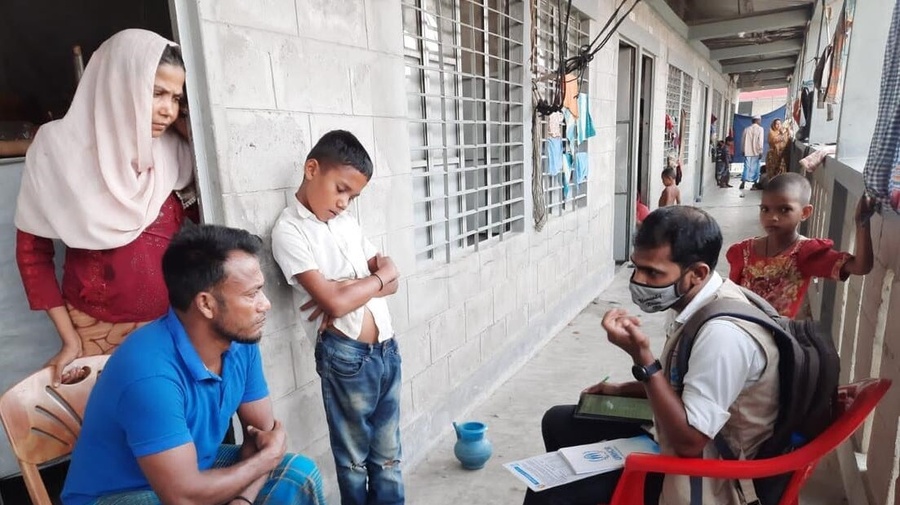
Our efforts are concentrated in forced displacement settings with identified knowledge gaps and high demand for data and evidence, supporting effective engagement with government officials and development partners.
Our priorities include:
- Promote the inclusion of forcibly displaced persons in national surveys, including those that measure poverty;
- Generate socioeconomic data and evidence and increase their systemic use to better inform programming, policy and advocacy;
- Leverage data and evidence as entry points to build for more sustainable support to displaced populations;
- Identify critical knowledge gaps and strengthen analytical initiatives with development partners and researchers to fill these gaps for policymaking and programming.
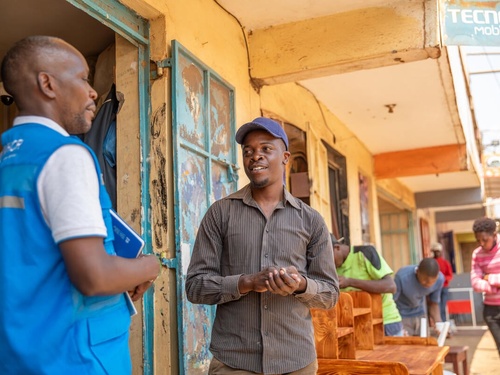
Latest publications
Global
- Socio-economic evidence in practice in forcibly displaced settings. Vol 3 July 2025: Putting data to work
- The economic case for welcoming refugees: A growing body of evidence shows that with inclusive policies, refugees contribute positively to host countries – Fact sheet
- Socio-economic evidence in practice in forcibly displaced settings. Vol 1 June 2021: Examples of UNHCR's uses of socioeconomic data to inform evidence-based programming, policy and advocacy – French
- Socio-economic evidence in practice in forcibly displaced settings. Vol 2 June 2022: Examples of uses of socio-economic data in advocacy, policy and programmes
Americas
- Chile: multidimensional poverty of refugees and migrants in Chile – Evidence brief
- Using cross-survey imputation to estimate poverty for Venezuelan refugees in Colombia – Working paper
- A critical assessment of the labour-based regularization programme (PEPFF) of Venezuelan refugees and migrants in Colombia – Policy brief
- Violence-driven displacement in Mexico: Why including IDPs in national statistics is necessary to inform a protection-based response – Report
- Socioeconomic integration of forcibly displaced populations in Latin America and the Caribbean – Note – Video
- What does the evidence say about IDPs in Colombia? – Evidence bulletin #1 – September 2023
- Impact of Venezuelan flow on Roraima State in Brazil – Implications for public policy
- Integration of Venezuelan Refugees and Migrants in Brazil – Research paper – Blog post
- Assessment of datasets in Colombia available for research – Data mapping
Asia and the Pacific
- Rebuilding lives: How return duration shapes income generation and reintegration dynamics for Afghan returnees – Report – Summary – Blog
- Two Settlements, Two Diverging Paths: Jobs and Labor Market Outcomes for the Displaced Rohingya Population - Analysis Based on The Cox's Bazar and Bhasan Char Panel Surveys – Report
- The impact of livelihood activities among Rohingya refugees in Bangladesh – Policy brief
- Gaming for cohesion between Rohingya and Bangladesh host community – Policy brief
- Demographic profile and humanitarian needs of 30,000 refugees relocated to the Bhasan Char island – Demographic study – Livelihoods brief
- The impact of financial assistance through volunteer programmes in Cox's Bazar refugee camps – Research Brief
- Age- and gender-based health risks facing adolescents within Rohingya refugee and Bangladeshi host communities – Policy briefs on health, nutrition, and SRH
- Cox's Bazar in Bangladesh – Innovations in gathering host and refugee evidence from the Rohingya crisis in Cox's Bazar
- Cox's Bazar Panel Survey – A comprehensive, large-sample survey that tracks both host and refugee households over time in Cox's Bazar, Bangladesh
East and Horn of Africa and the Great Lakes
- Navigating the complexity of return: Findings from the Forced Displacement Survey, South Sudan 2023 – Report
- Ethiopia: multidimensional poverty of refugees in and out of camps, relative to host communities
- Reintegration and service gap analysis in South Sudan – Report, key findings, and assessment toolkit
- Kenya Analytical Program on Forced Displacement (KAP-FD) – Factsheet – Report on the Kenya Longitudinal Socioeconomic Study of Refugees and Host Communities – Infographic – Blog: Education as a catalyst for community integration
- The Transformative Power of Citizenship: Findings from the 2024 Socioeconomic Study of the Shona Community in Kenya – Press release – Report – Policy Brief
- Livelihoods lost: Findings from two rounds of the Somalia Displacement Phone Survey (2022) – Report
- Refugee struggle, professional downgrading, and skills mismatches in the labour market in Uganda – Research paper
- Improving employment outcomes in Uganda – Summary – Policy brief – Knowledge brief – Blog post
- Supporting the most vulnerable groups in Uganda – Targeting assistance programmes to persons with specific needs and vulnerabilities
- Innovative Microlending in Kenya – Kiva Zip & RefugePoint – Enabling refugee entrepreneurs to become more successful and self-reliant
- A high number of refugees and host members in Kenya cannot see well – Thematic note
- Kalobeyei Settlement in Kenya – Full report – Summary – Infographic – Microdata
- Kakuma Camp in Kenya – Full report – Summary – Infographic – Microdata
- Urban refugees in Kenya – Full report – Summary – Infographic
- Comparative analysis of urban and camp-based refugees in Kenya – Full report – Summary – Infographic
- Stateless Shona community in Kenya – Full report – Summary – Blog post – Microdata
- Summary of sectors, thematic areas, and associated datasets in Rwanda – Data mapping overview
Europe
- Integration between challenges and opportunities: A study on socio-economic conditions of refugees in Italy – Report
- Regional Refugee Response for the Ukraine Situation: High employment rates, but low wages: a poverty assessment of Ukrainian refugees in neighbouring countries – Report – Watch the presentation
- Access Study: Understanding Effective Coverage and Barriers to the Ukrainian State Social Protection System – Report – Watch the presentation
- Analysis of the impact of refugees from Ukraine on the economy of Poland – March 2024
- The Role of Housing Support and Employment Facilitation in Economic Vulnerability of Refugees from Ukraine – Analytical brief
Middle East and North Africa
- Enhanced Regional Survey on Syrian Refugees’ Perceptions and Intentions on Return to Syria (Egypt, Iraq, Jordan, Lebanon) – Report (September 2025)
- Understanding Syrian refugee and IDP return dynamics in 2025 – Project concept note
- Understanding the socio-economic profile of refugee arrivals in Mauritania since 2023: Analysis of UNHCR and WFP data on Malian refugees living in Mauritania (October 2024) – Policy brief: English – Policy brief: French
- Socioeconomic impact of COVID-19 on forcibly displaced populations in Lebanon – Microdata
Southern Africa
- Graduation programme in Mozambique – Design of impact evaluation: employment, welfare and social integration – Blog post – Impact evaluation: Socioeconomic integration improves when refugees and hosts are more financially secure – Research paper: Financial security, climate shock and social cohesion – Blog post – Video
- Improving welfare and food security through better land productivity – Overview of access to land and its uses by refugees in the Maratane Camp and host communities in Mozambique
West and Central Africa
- Self-reliance of refugees in Chad: A business case for water-spreading weirs – Report – Sudan Regional Crisis – Development Action Platform
- Self-Reliance of refugee households in the Savanes region of Togo – Report (French) – Summary (English)
- Reaching the poorest refugees in Niger – Evaluation of food and cash distribution
Text and media 31
Developed with the World Bank and Member States, the initiative provides reports and data dashboards estimating the global cost of refugee inclusion in education and health systems, and of meeting refugees’ subsistence needs.
Text and media 22
We work with data and statistics, which help us to understand important information to save, protect and improve lives. A microdata library provides data collected through census, registration and administrative exercises and surveys.
Text and media 23
We are working to enhance the ability of stakeholders to make timely and evidence-informed decisions that improve the lives of affected people.
Text and media 24
This research joint partnership aims to contribute to expanding high-quality and policy-relevant research on forced displacement.


